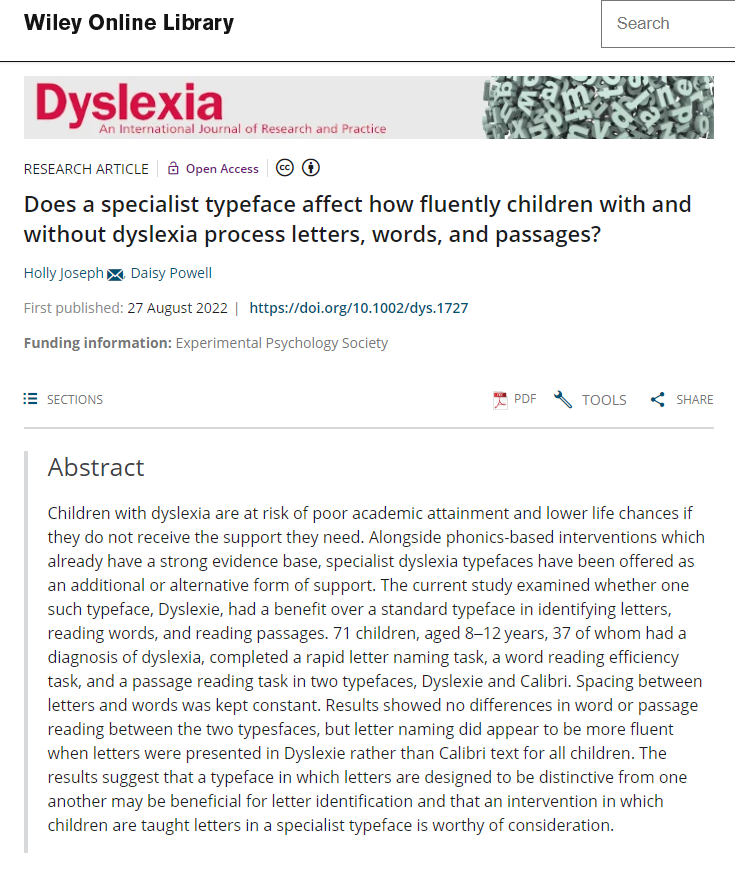Professor Holly Joseph (Professor of Language Education and Literacy Development) and Dr. Daisy Powell (Associate Professor in the Psychology of Written Language) – both of the University of Reading’s Institute of Education – publish a research paper exploring whether presenting letters, words, and passages to children in a specialist typeface compared to a standard typeface improved dyslexic children’s reading fluency.
The article, titled ‘Does a specialist typeface affect how fluently children with and without dyslexia process letters, words, and passages?’, is published in the journal Dyslexia. It can be accessed here free of charge.

Commercially available specialist typefaces for people with dyslexia claim to make reading easier and more fluent and have become increasingly popular with teachers and parents in recent years. However, recent research does not find a benefit for these typefaces if spacing between letters and words is controlled. However, it is possible that looking at reading behaviour rather than reading speed may show an advantage for specialist typefaces compared to standard ones. The study examined whether presenting letters, words, and passages to children in a specialist compared to a standard typeface improved their reading fluency (for letter and words) and behaviour (using eye tracking) and comprehension for passages. 71 children, aged 8–12 years, 37 of whom had a diagnosis of dyslexia, completed a rapid letter naming task, a word reading efficiency task, and a passage reading task in two typefaces, Dyslexie and Calibri. Results showed no difference for dyslexic or typical readers in word and passage reading but there was a small advantage for the specialist typeface in letter naming, suggesting the typeface helped letter discrimination. The study concluded that it may help some children (e.g. those at risk of dyslexia) in early years to learn letters in a specialist typeface, but further research is needed to find out whether this is the case.
To learn more about Professor Joseph’s research interests, click here. She tweets at @drhollyjoseph.

To learn more about Dr. Powell’s research interests, click here.


